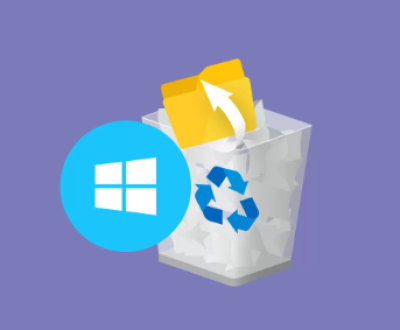SolidWorks is a powerful CAD software used across engineering and design industries for creating complex 2D and 3D models. As reliable as it is, users occasionally encounter a disconcerting issue: the “Failed to Save Document” error. This error often appears suddenly when saving a part, assembly, or drawing, sometimes after hours of work.
Chapter 1: Error
1.1 What Does the Error Mean?
The “Failed to Save Document” message typically means that SolidWorks was unable to complete the save process due to a conflict, permission issue, file corruption, or software fault. It may appear in different forms, such as:

“Failed to save document [filename].sldprt”
“Cannot save file to location”
“Write access denied”
1.2 Severity
This error can be critical. If unsaved changes are lost, it can mean redoing substantial work. That’s why immediate troubleshooting is vital.
Chapter 2: Common Causes
2.1 File Path or Filename Issues
Invalid characters (e.g., *, ?, <, >, |)
Overly long file paths (>255 characters)
Saving to a non-existent or deleted directory
2.2 Network or Drive Disconnection
Saving to a disconnected network drive
USB drives removed mid-session
Cloud-synced folders not syncing correctly
2.3 Lack of Permissions
No write access to folder or file
Read-only attribute on files
Antivirus or Windows Defender blocking the save
2.4 Temporary File Corruption
Crashes or forced shutdowns
Previous sessions leaving behind corrupt temp files
2.5 Low Disk Space or Quota
Insufficient space on the drive
Disk quota limits on network shares
2.6 SolidWorks or Add-in Bug
Faulty version updates
Buggy third-party add-ins
Poor file format conversions
Chapter 3: Quick Fixes to Try First
3.1 Try “Save As”
Sometimes, using File > Save As to rename and save the file elsewhere helps. Use a simple name and local folder like C:\Temp.
3.2 Restart SolidWorks and PC
Basic, but restarting can clear memory, release file locks, and restart background processes.
3.3 Check Storage Space
Make sure the drive you’re saving to has free space. Clean up if needed.
Chapter 4: File and Folder Permissions
4.1 Remove Read-Only Attribute
Right-click the file or folder.
Choose Properties.
Uncheck Read-only, then click Apply.
4.2 Run SolidWorks as Administrator
Right-click SolidWorks icon.
Click Run as administrator.
Try saving again.
4.3 Folder Ownership
If saving to a shared or restricted folder:
Right-click folder > Properties > Security.
Click Edit > assign full control to your user account.
Chapter 5: Check Network Drives and External Devices
5.1 Ensure Network Availability
Reconnect to the mapped drive.
Ping the network location.
Test by saving a basic text file to the same folder.
5.2 Avoid Sync Conflicts
Pause OneDrive or Dropbox if syncing the folder.
Sync conflicts can lock or rename SolidWorks files.
Chapter 6: Save to a Local Drive
Try saving your file to C:\Users\YourName\Documents\SolidWorks to avoid:
Network lag
Access denial
File locks
If that works, then the issue is likely with your original save location.
Chapter 7: Disable Antivirus/Firewall Temporarily
Security software may block access or lock files in real-time scanning.
Steps:
Temporarily disable antivirus or Windows Defender.
Try saving the file again.
If it works, whitelist your SolidWorks folders and extensions (*.sldprt, *.sldasm, *.slddrw).
Chapter 8: File Corruption and Recovery
8.1 Auto-Recovery
SolidWorks periodically saves recovery files.
Go to: C:\Users\YourName\AppData\Local\SolidWorks\AutoRecover
Check for .sldprt, .sldasm, or .slddrw files with timestamps.
Open the latest and try saving.
8.2 Use Save As Copy
Sometimes you can bypass corruption:
File > Save As.
Check Save as copy and choose a new location.
Reopen that new file.
Chapter 9: Use SolidWorks Rx Tool
SolidWorks Rx can diagnose environment or hardware-related issues.
Steps:
Open SolidWorks Rx from Start Menu.
Go to Diagnostics and run the scan.
Check if there are any hardware, permission, or software conflicts.
Chapter 10: Turn Off Problematic Add-Ins
Add-ins like PDM or CAMWorks may interfere with saving.
Steps:
Go to Tools > Add-Ins.
Uncheck all third-party add-ins.
Restart SolidWorks and try saving again.
Chapter 11: Repair or Reinstall SolidWorks
11.1 Repair
Go to Control Panel > Programs > Programs and Features.
Right-click SolidWorks > Change > Repair Installation.
11.2 Clean Reinstall
If repair doesn’t work, consider uninstalling and reinstalling SolidWorks.
Chapter 12: Use Version Compatibility
Sometimes, saving errors happen due to incompatible versions.
Don’t open future-version files in older SolidWorks.
Convert older versions carefully; avoid broken references.
Chapter 13: Preventive Measures
13.1 Enable Auto-Recovery
Tools > Options > Backup/Recover
Set Auto-recovery save interval to 5–10 minutes.
13.2 Save Locally First
Avoid saving directly to external or network drives during modeling.
Save locally, then back up to the network afterward.
13.3 Use Consistent File Naming
Stick to A–Z, 0–9. underscores, and hyphens.
Avoid spaces and special characters.
Chapter 14: SolidWorks PDM Considerations
14.1 Checked-in Files
If you’re using SolidWorks PDM:
Ensure files are checked out before editing.
You cannot save or overwrite checked-in files.
14.2 Vault Connectivity
Confirm you’re connected to the PDM vault.
Disconnections can prevent saving and cause sync issues.
Chapter 15: Last-Resort Workaround – Copy to New File
If you still can’t save:
Open a new part or assembly.
Copy-paste your model features or bodies.
Save the new file normally.
This creates a clean slate free of corrupted metadata.
The “Failed to Save Document” error in SolidWorks can strike when you least expect it. Whether caused by permission issues, file corruption, or environmental conflicts, the good news is that it’s often recoverable.
Always work from local directories, keep auto-recovery enabled, and make frequent manual saves using Save As. If the issue persists, use diagnostic tools like SolidWorks Rx or professional CAD support channels.
About us and this blog
Panda Assistant is built on the latest data recovery algorithms, ensuring that no file is too damaged, too lost, or too corrupted to be recovered.
Request a free quote
We believe that data recovery shouldn’t be a daunting task. That’s why we’ve designed Panda Assistant to be as easy to use as it is powerful. With a few clicks, you can initiate a scan, preview recoverable files, and restore your data all within a matter of minutes.

 Try lt Free
Try lt Free Recovery success rate of up to
Recovery success rate of up to









